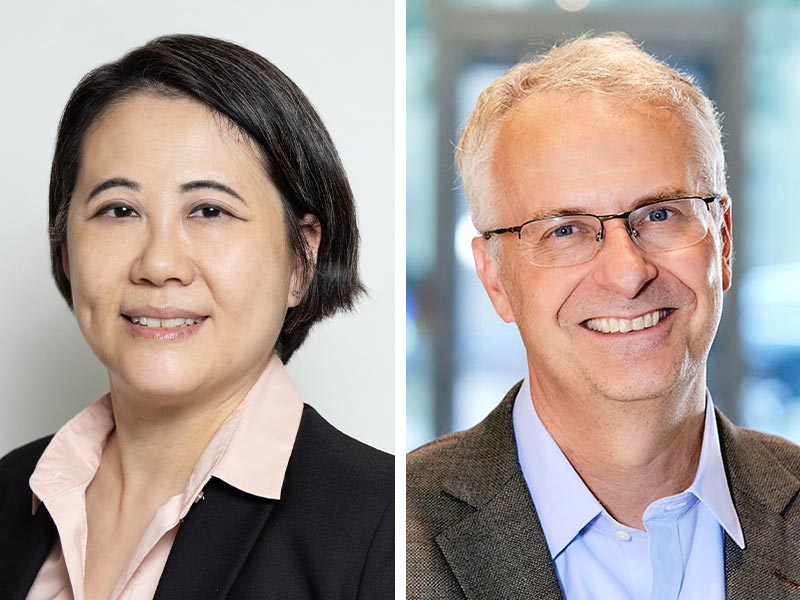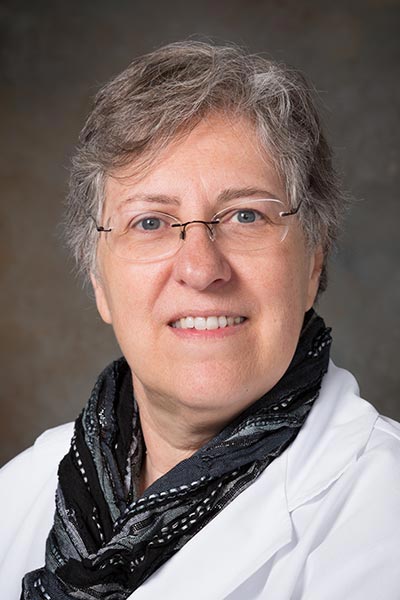Previewing AACR Annual Meeting 2025: ‘Unifying Cancer Science and Medicine: A Continuum of Innovation for Impact’

The AACR Annual Meeting 2025 kicks off in just a few weeks, and the anticipation is palpable as the scientific community awaits the pinnacle event of innovation, collaboration, and breakthroughs in cancer research. The Annual Meeting 2025 will be held April 25-30 at the McCormick Place Convention Center in Chicago, Illinois. In-person and virtual registration options are available.
The Program Committee chairs of this year’s Annual Meeting are:
- Lillian L. Siu, MD, FAACR, AACR President-Elect and a senior medical oncologist, director of the Phase I Clinical Trials Program, BMO Chair in Precision Cancer Genomics, and codirector of the Bras and Family Drug Development Program at the Princess Margaret Cancer Centre, University Health Network; and
- Matthew G. Vander Heiden, MD, PhD, the director of the Koch Institute for Integrative Cancer Research at the Massachusetts Institute of Technology and an instructor of medicine at Dana-Farber Cancer Institute.

“The AACR Annual Meeting is one of the most important meetings in cancer research, and Drs. Siu and Vander Heiden have put together an incredible program this year that truly captures the breadth and continuum of cancer research,” said AACR President Patricia M. LoRusso, DO, PhD (hc), FAACR, a professor of medicine, chief of the early phase clinical trials program, and associate cancer center director for experimental therapeutics at the Yale Cancer Center and Smilow Cancer Hospital. “I am grateful for their hard work and excited to learn from and connect with meeting attendees.”
The meeting theme, “Unifying Cancer Science and Medicine: A Continuum of Innovation for Impact,” reflects the critical importance of advancing cancer research from the bench to the clinic and back to the bench.
“The AACR Annual Meeting will bring together the whole continuum of science and medicine,” said Siu. “AACR has long championed basic research, and while this year’s Annual Meeting will continue this tradition, we will also showcase innovative leaps in translational research, predictive oncology, population sciences, clinical trials, and clinical research.”
Vander Heiden added, “Addressing this continuum of innovation from basic to translational to clinical research is vitally important because it ultimately impacts patients. The meeting is designed to bring together those who are striving to better understand the fundamentals of cancer biology and those who are aiming to take this new knowledge and translate it in innovative ways to therapeutics and clinical trials, all with the overarching goal of improving patient care.”
Siu and Vander Heiden each bring a unique perspective to the planning of the scientific program. As a medical oncologist with a long history in clinical research and clinical trials, Siu provides expertise on the clinical end of the spectrum, and Vander Heiden, a medical oncologist and a leader in cancer metabolism, brings expertise in basic cancer research. Both have experience in translational research from different ends of the spectrum, Siu noted.
“With our complementary backgrounds, we have been great partners in designing a program that fulfills the vision of the meeting theme,” said Vander Heiden.
The theme is apparent throughout the scientific program, most notably through the expansive and groundbreaking topics featured in the six Plenary Sessions, including cancer evolution, innovative technology, targeting the cancer ecosystem, predictive oncology, and more. Don’t miss Sunday’s Opening Plenary, where experts in the field will expand on advances in KRAS inhibition, extrachromosomal DNA, the tumor microenvironment, and personalized cancer vaccines.
Countless other scientific and educational sessions will dive into the field’s major topics—clinical trials, hematologic malignancies, rare cancers, early-onset cancers, early detection and interception, disparities, survivorship and patient advocacy, and artificial intelligence and other cutting-edge technologies, just to name a few.
As in previous years, the meeting will be livestreamed for remote attendees, and all registrants will have access to the on-demand recordings through the end of October. While the remote options vastly increase the meeting’s accessibility, Siu and Vander Heiden emphasize the benefits of attending in person for those who are able.
“In-person attendance offers the opportunity to meet with speakers, interact with colleagues, and really tune into presentations,” said Siu. “I personally find that dedicating time to an in-person meeting allows me to absorb more from the experience.
“Plus, Chicago’s a great city.”
Register Today for the AACR Annual Meeting 2025
Don’t miss the most important cancer meeting of the year, April 25-30 in Chicago, Illinois. In-person and virtual registration packages include full access to live sessions, Q&A, networking, CME/MOC credits, and more.

